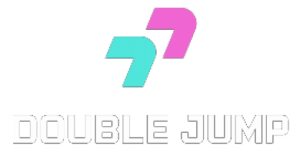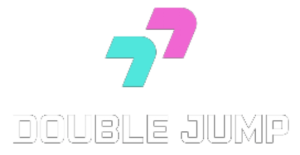Introduction
IndieGoGo and Kickstarter are two popular crowdfunding platforms for entrepreneurs, projects, and charities. Both services offer similar features that help you promote, manage, and fund your project.
It can be difficult to decide which of these two platforms is best for you. In this article, we will provide an overview of IndieGoGo and Kickstarter to help you make the best choice.
What is IndieGoGo?
IndieGoGo is a crowdfunding platform that allows entrepreneurs to launch their ideas into the world. It was founded in 2008 and has since become one of the most popular crowdfunding sites out there.
IndieGoGo also offers ‘flexible funding’ options, meaning that project creators can keep any donations made to the campaign, regardless of whether or not they reach their goal amount (though IndieGoGo will still take its fee).
With flexible funding campaigns, any funds received are dispersed directly to the campaign creator. Furthermore, IndieGoGo allows its users to accept donations in over 160 different currencies worldwide, helps track potential contributors’ data points and keeps a record of all campaigns undertaken through its site.
Additionally, the platform provides numerous promotional materials and support so users can have successful campaigns with greater visibility online.
What is Kickstarter?
Kickstarter is an online crowdfunding platform that enables creatives, entrepreneurs, and all sorts of independent-minded people to bring their project ideas to life. It allows creators to post their projects for potential backers to comment on and support. Projects can range from albums to books, apps and gadgets, games, food products and much more.
Kickstarter requires a “all or nothing” funding model. Creators only receive money if the project is successfully funded by the set deadline; if it does not reach its goal amount, backers are not charged for their commitment.
Creators can decide how much they want to charge per project they create; the average fee is 5%. Fees cover processing charges from PayPal (or other payment processor) as well as platforms costs such as staff time reviewing projects and making sure that it follows the guidelines before its publication.
When trying to decide between IndieGoGo and Kickstarter, it is important to consider a number of factors. Below are some of the key considerations when choosing which platform is right for you:
IndieGoGo vs Kickstarter
Project Qualifications: The two platforms have slightly different requirements for projects. Kickstarter requires creators to provide an accurate description, timeline, and goal; ask for help only for forces that are external to the project; create something ready-to-be-manufactured; and form a company in order to launch their project on the platform. On the other hand, IndieGoGo does not require any paperwork and allows projects from all industries (including personal causes).
Funding Options: Kickstarter, only allows fixed funding campaigns, which means if you fail to meet your minimum funding goal on Kickstarter, you do not receive any of the money raised – whereas IndieGoGo offers both fixed funding and flexible funding options.
Fee Structure and Terms of Service: The fees structure is quite similar as both Kickstarter and IndieGoGo both take 5% of funds raised plus a payment processing fees. Yet, there are significant differences in their terms of services as some countries may be omitted or certain categories.
Campaign Duration: Projects on Kickstarter can can last anywhere from 1 day to 60 days IndieGoGo campaigns are automatically set for 60 days. Thought research shows that the sweet spot is for a project to run around 30-40 days.
Customer Service: In terms of customer service, each platform offers contact options through email or phone support teams – yet Kickstarter has a bigger customer service team with localized help for different countries around the world.
Rewards and Pledges: Campaigners can offer rewards (such as products or services related to their campaigns) based on increasing pledge amounts both through either IndieGoGo or Kickstarter’s channels with no difference between both platforms in this aspect. Though they must fall into the guidelines provided by both platforms as there are certain rewards that are prohibited to give as rewards including: equity, alcohol, or medical drugs.
Transparency: When looking at transparency both platforms provide campaigners with fund breakdowns throughout campaigns.
Conclusion
In conclusion, both IndieGoGo and Kickstarter are great crowdfunding platforms for launching a project. Both platforms have different levels of commitment and reward structures that you can use to reach your goals, but there are a few key differences between the two, that you should be aware of when making a choice.
Both Kickstarter and IndieGoGo are an open marketplace where anyone can launch. However, if you’re unsure if you can raise the full amount, IndieGoGo might be a better route to take than Kickstarter which requires you fully fund before you can collect any of the money from backers.
On the other hand, if you have more financial resources and want more structure when launching your campaign, then Kickstarter might be a better option.
Ultimately, it’s up to you on deciding which platform is best for your project. Both offer useful tools and plenty of support so it’s important to weigh each option carefully before making a final decision.
Contact Us
Fill out the form below and we will be in touch shortly! Looking for employment or contract opportunities? Use this FORM instead.
follow us on instagram @DOUBLEJUMPMEDIA



